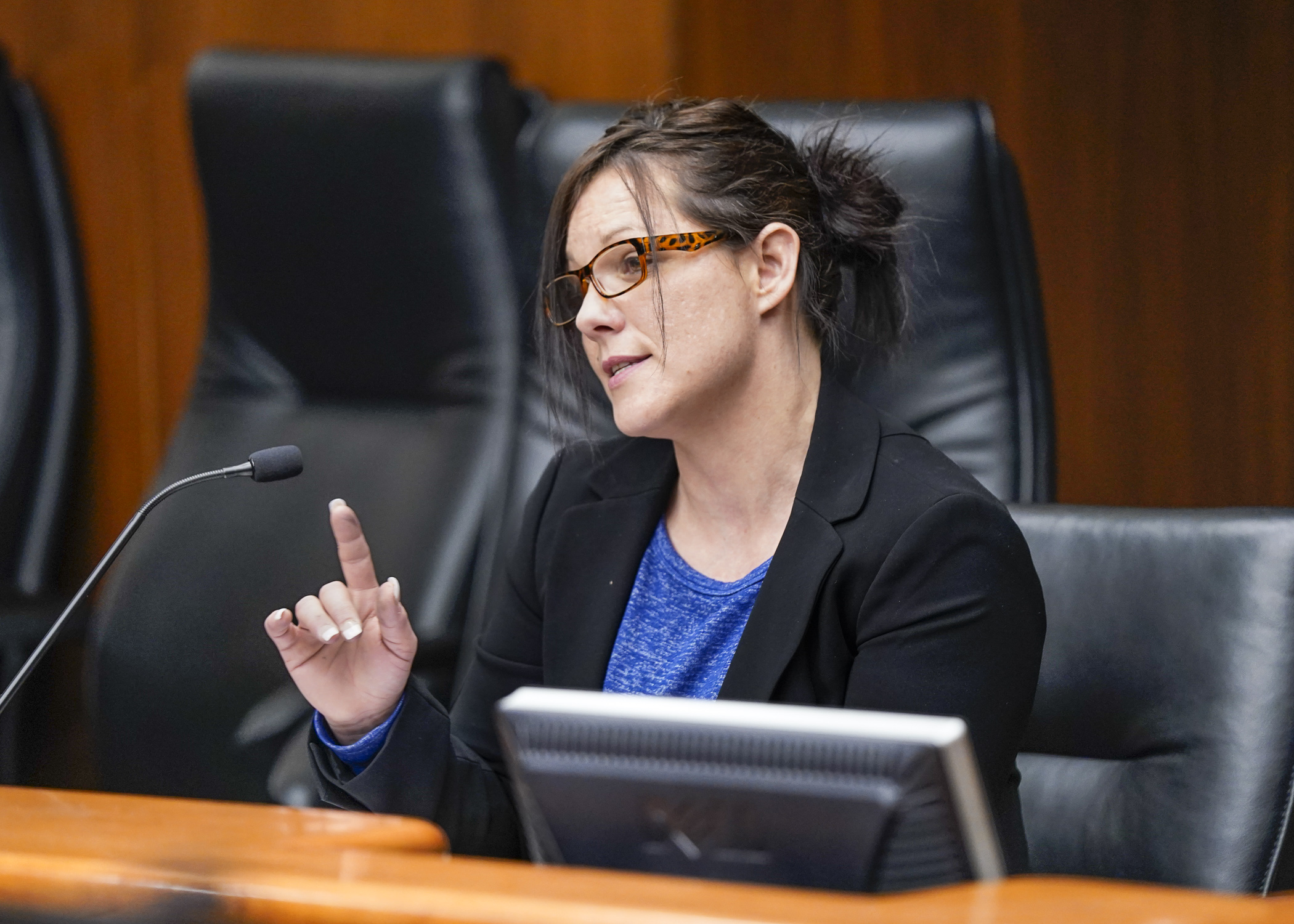Sponsor says bill to cap probation terms at five years would relieve state’s ‘overburdened’ system

Sentenced in 2013 for a drug possession, Jennifer Schroeder received one year in jail and 40 years on probation.
She won’t be off probation until 2053 when she’ll be 71. Until then, she can be sent back to jail on any probation violation, no matter how minor.
“(It) is something that resonates with me every day,” Schroeder said.
Criminal punishment in Minnesota skews toward shorter prison stays combined with longer probation terms.
However, a House leader believes that setup is simply not working.
“The length of our probation terms in Minnesota are failing the basic tests of fairness, [they are] wasting resources and not achieving our goals of reducing recidivism or increasing public safety,” said House Majority Leader Jamie Long (DFL-Mpls).
He sponsors HF1607 that would cap probation terms at five years for most felony offenses, except for cases of homicide and criminal sexual conduct. And that cap would be retroactive, allowing people currently serving more than five years on probation to be resentenced.
The House Public Safety Finance and Policy Committee amended the bill Tuesday and laid it over.
Long said research shows most revocations occur, if at all, within the first two years of probation, and that only about 1% of probationers are revoked after five years on probation.
“Probation is designed to provide offenders the opportunity to stay in communities, find or keep their jobs, and be directed to social services to help prevent them from recidivism,” said Will Cooley, project lead at the Minnesota Justice Research Center.
Unfortunately, he said, “excessive terms on supervision” have led to extremely heavy caseloads for probation officers, which are severely stressing the probation system and are a poor use of limited resources.
“The growth of the state’s probation population has overburdened local and state agencies, deteriorating the ability to provide the best returns on our public safety investments, deliver rehabilitation, and establish accountability,” he said.
Long said the Minnesota Sentencing Guidelines Commission recognized the problems with lengthy probation terms when it amended the guidelines in 2020 to limit probation to no more than five years for most felony offenses.
However, Long said the commission’s change did not eliminate the discretion judges would still have to deviate upward for “substantial and compelling reasons.”
The bill would remove that discretion, which is important, Long said, because upward sentencing deviations for either prison or probation terms have been shown to have a racial bias.
Rep. Paul Novotny (R-Elk River) said it would be unwise to take away that judicial discretion, because certain offenders, such as perpetrators of sexual assault, are at a higher risk of reoffending and therefore need longer terms of supervision.
He also believes the retroactivity provision should not be automatic, rather it needs to include a public process that includes victim notification and prosecutor review or input.
Related Articles
Search Session Daily
Advanced Search OptionsPriority Dailies
Speaker Emerita Melissa Hortman, husband killed in attack
By HPIS Staff House Speaker Emerita Melissa Hortman (DFL-Brooklyn Park) and her husband, Mark, were fatally shot in their home early Saturday morning.
Gov. Tim Walz announced the news dur...
House Speaker Emerita Melissa Hortman (DFL-Brooklyn Park) and her husband, Mark, were fatally shot in their home early Saturday morning.
Gov. Tim Walz announced the news dur...
Lawmakers deliver budget bills to governor's desk in one-day special session
By Mike Cook About that talk of needing all 21 hours left in a legislative day to complete a special session?
House members were more than up to the challenge Monday. Beginning at 10 a.m...
About that talk of needing all 21 hours left in a legislative day to complete a special session?
House members were more than up to the challenge Monday. Beginning at 10 a.m...